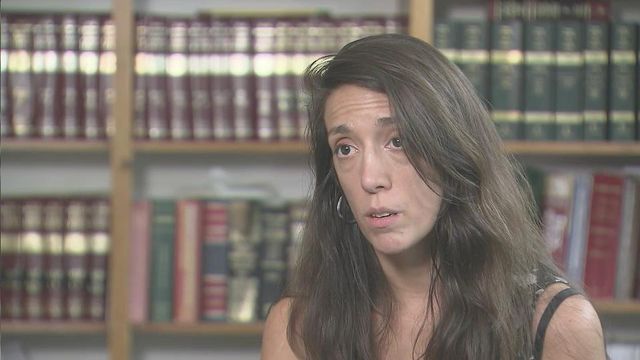Report: Wake schools suspensions a 'prison pipeline'
In a report issued Monday, Legal Aid of North Carolina blasted the disciplinary system in the Wake County Public School System, calling it a "school-to-prison pipeline."
"The pipeline is a system of laws, policies, and practices that pushes students out of schools and on a path toward the juvenile and criminal systems," the report said.
Legal Aid's Advocates for Children's Services project looked at data on student suspensions for the 2011-12 school year and found the punishments are applied disproportionately to students who are African-American, economically disadvantaged or disabled.
Jennifer Story, one of the report's authors, said, "There are still too many students being suspended in Wake County."
ACS argued that suspensions – both in-school and out-of-school – are used inconsistently as punishment and do not always teach the right lesson.
"Our consequence for them – to teach them not to skip school is to force them not to come to school," Story said.
“What we found in reviewing thousands of pages of public records and analyzing extensive data was that the WCPSS does not have a comprehensive, coordinated approach to preventing misbehavior and intervening when it occurs,” said report co-author Jason Langberg.
Superintendent Dr. Jim Merrill didn't have a comment, although a spokesman for the district said leaders of the state's largest school district were aware of the claims and were reviewing the data.
Keith Sutton, chairman of the Wake Board of Education, said the report didn't come as a surprise.
There have even been suggestions to place a moratorium on some suspensions until the district can iron the issues out.
"We have had concerns about this for a while," Sutton said. "These are things we are aware of and taking steps to address."
He noted that short-term suspensions were down 18 percent in 2012-13, and long-term suspensions were down 30 percent over the year ACS studied.
The report also found little consistency in security policy and procedures followed by school resource officers, private school security and school staff, and report authors questioned the logic that requires complaints about students over the age of 16 to be adjudicated in the adult legal system.
"Any time a school-based complaint is filed against a WCPSS student over age 16, the student goes straight into the adult criminal system. In an attempt to increase safety and security, the WCPSS is instead sending students directly into a school-to-prison pipeline," the authors wrote.
Sutton acknowledged that the schools could use more alternative programs, counselors and psychologists.
"Some of it is budget issues that make it hard to address," he said. "But some (solutions) do not cost money."
Story, Langberg and ACS hope the report re-opens the discussion of punishment alternatives.
"Instead of pushing kids out, which is easy to do, how about taking a step back and looking at the root of the problem," Story suggested.











